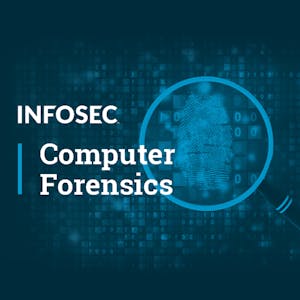Embedded Systems using C
About this Course
Embark on a comprehensive journey into Embedded Systems with this course. Module 1, \"Introduction to Embedded Systems,\" lays the foundation by exploring principles, architectures, and essential devices. In Module 2, \"Programming Fundamentals in C,\" participants master C programming essentials, including operators, storage classes, and flow control structures. Transitioning to Module 3, \"Advanced Concepts in C for Embedded Systems,\" participants delve into functions, arrays, pointers, and string manipulation techniques. By the course\'s conclusion, participants emerge equipped with the knowledge and skills necessary for confident navigation and programming in C for embedded systems development. Learning Outcomes: Upon completing this course, participants will: 1) Gain a solid understanding of Embedded Systems principles, architectures, and essential devices. 2) Master C programming essentials, including operators, storage classes, and flow control structures. 3) Dive deep into advanced C concepts crucial for embedded systems, such as functions, arrays, pointers, and string manipulation techniques. 4) Acquire practical skills through hands-on projects and exercises, enhancing their ability to develop embedded systems applications. 5) Develop confidence in their ability to design, program, and troubleshoot embedded systems using C. Target Learners: 1) Electrical Engineering or Computer Science Students: Those pursuing degrees in electrical engineering or computer science, particularly with an interest in hardware-software integration and low-level programming. 2) Embedded Systems Professionals: Engineers or professionals already working in the field of embedded systems who want to deepen their understanding of C programming for embedded applications and enhance their skill set. Pre-requisites: 1) Basic Programming Knowledge: Familiarity with programming concepts such as variables, loops, functions, and data structures. 2) Understanding of C Programming Language: Proficiency in the C programming language including syntax, data types, pointers, memory management, and basic file operations. 3) Fundamental Electronics Knowledge: Basic understanding of digital electronics, microcontrollers, and input/output (I/O) interfacing concepts. 4) Computer Architecture Basics: Knowledge of computer architecture fundamentals such as CPU, memory, input/output devices, and the concept of interrupts.Created by: EDUCBA

Related Online Courses
This series of courses is intended to provide learners with the tools to develop and operate a home-based childcare center. Stages of child development, best practices to stimulate learning,... more
This is a self-paced lab that takes place in the Google Cloud console. In this lab, you use BigQuery to troubleshoot common SQL errors, query the data-to-insights public dataset, use the Query... more
The Windows OS Forensics course covers windows file systems, Fat32, ExFat, and NTFS. You will learn how these systems store data, what happens when a file gets written to disc, what happens when a... more
In 2020 the world will generate 50 times the amount of data as in 2011. And 75 times the number of information sources (IDC, 2011). Being able to use this data provides huge opportunities and to... more
In this course, developed at the Darden School of Business at the University of Virginia and taught by top-ranked faculty, we will be discussing the emergence of a new story about business. This... more








